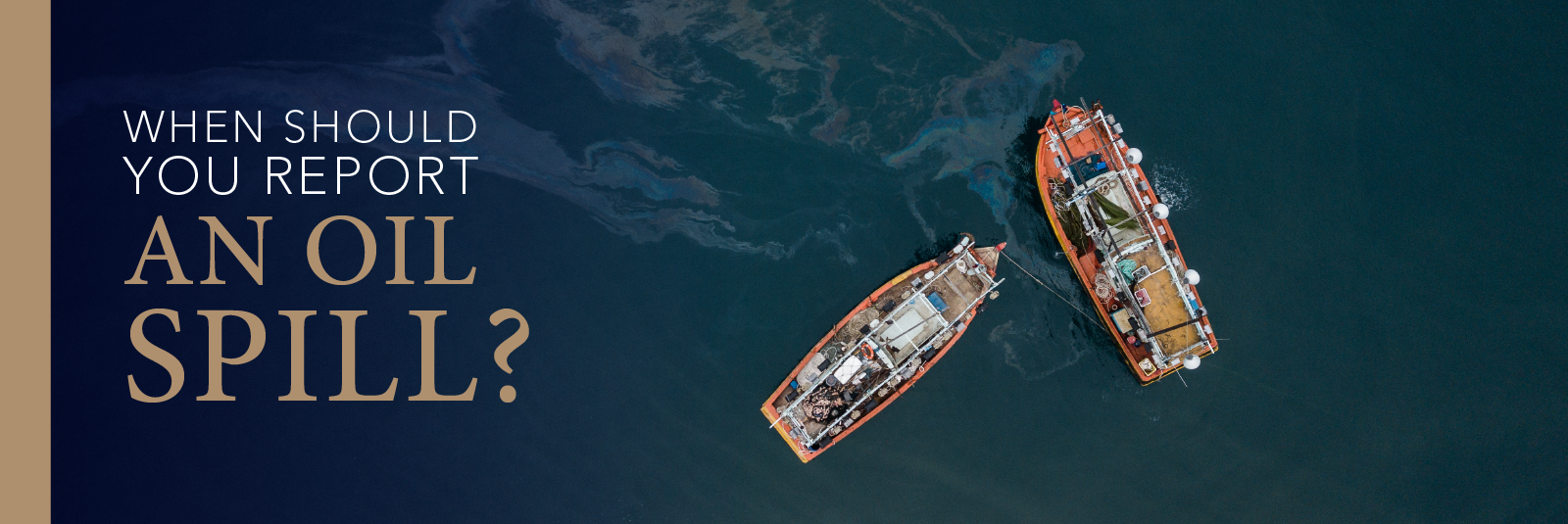Trick question. If an oil spill occurs, time is always of the essence. Reporting the spill in a timely and efficient manner is critical to mitigating damage to vessels and the environment. The EPA has established requirements to report spills to navigable waters or adjoining shorelines, which we’ve summarized below to help prepare you in the event a spill.
Who Is Responsible For Reporting an Oil Spill?
Any person or organization in charge of a vessel that’s responsible for a spill is required to notify the federal government. Also, if you discover an oil spill you bear no responsibility for, it’s also strongly encouraged you contact the federal government.
When To Report an Oil Spill
It’s required to report oil spills immediately after you gain knowledge of the discharge and/or after the amount reaches federally-determined limits.
Regarding the established limits, the EPA defines discharges of oil that may be harmful to public health or the environment are those that:
- Violate applicable water quality standards;
- "Cause a film or sheen upon or discoloration of the surface of the water or adjoining shorelines”;
- “Cause a sludge or emulsion to be deposited beneath the surface of the water or upon adjoining shorelines."
The requirements for reporting oil spills are mandated by Discharge of Oil Regulation, known as the "sheen rule," and the Spill Prevention, Control, and Countermeasure (SPCC) Rule. Under these regulations, oil spill reporting does not depend on the specific amount of oil spilled, but on the presence of a visible sheen or sludge created by the spilled oil.
Note that the EPA defines certain oil discharges that don’t need to be reported, such as those: from a properly functioning vessel engine, from research and demonstration projects (determined on a case-by-case basis), and permitted under MARPOL. Here is a full list of the EPA’s oil spill reporting exemptions.
How To Report Oil Spills
Reporting spills is quite easy. Simply call the federal government's centralized reporting center, the National Response Center (NRC), at 1-800-424-8802. The NRC operates 24/7 and will ask you to provide any information you have about the spill, including: the date, time, and location of the incident; what materials were released; weather conditions, and more.
If for any reason you cannot call the NRC, you can also report spills to the EPA Regional office (if the spill affects inland areas or waters) or the closest U.S. Coast Guard Marine Safety Office (if the spill affects coastal waters, the Great Lakes, ports and harbors, or the Mississippi River). The EPA and U.S. Coast Guard will then communicate with the NRC to manage the incident.
Check out these industry statistics to learn more about why reporting and mitigating oil spills is so important.




